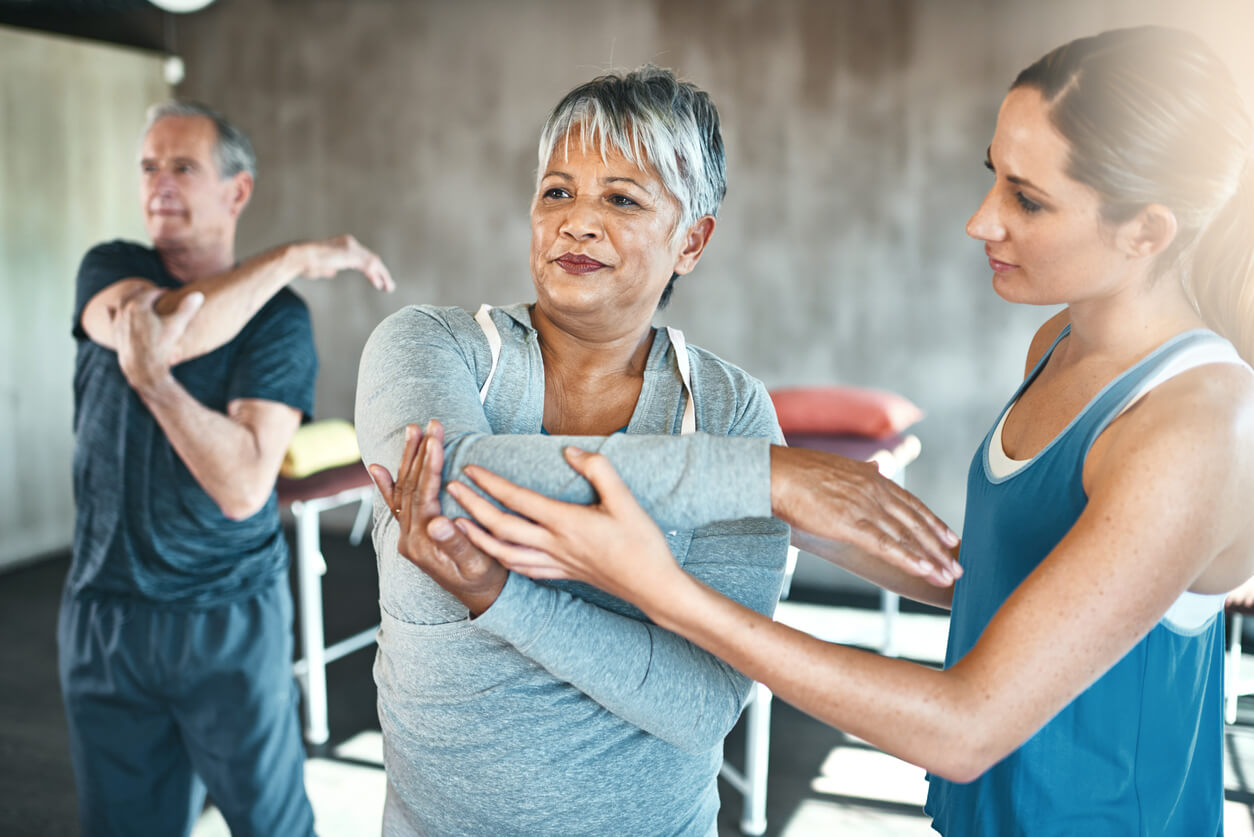
Are you struggling with the pain and stiffness of arthritis? If you are, then understanding your condition better and employing some arthritis management self-care strategies can significantly alleviate your symptoms.
Here is some information on the kinds of arthritis and some tips to help you move and to feel better.
Common Kinds of Arthritis
There are more than 100 types of arthritis, the most common of which are osteoarthritis (OA) and rheumatoid arthritis (RA).
Osteoarthritis
This type of arthritis is referred to as “wear-and-tear” arthritis. With OA, joint cartilage wears down over time. It can affect any joint in your body. However, it usually affects the hands, knees, hips, and spine.
Rheumatoid Arthritis
RA is an autoimmune disorder in which your immune system mistakenly attacks healthy tissues in your body. This causes inflammation in the joints and can damage bones, cartilage, ligaments, and tendons over time.
Tips for Dealing with Joint Pain and Stiffness
Sadly, people with arthritis often limit their day-to-day activities, such as household tasks due to pain. They are also more at risk for injuries related to falls and accidents.
The good news is your internal medicine doctor can help you cope with the stiffness and pain of arthritis. For most people, interventions do not involve complex surgeries. Instead, a customized arthritis management care plan is enough to help you manage your symptoms and continue living your life to the fullest.
Here are some arthritis management tips you can incorporate into your daily routine.
Tip #1 Exercise Regularly
How can exercise improve painful joints? The key is gentle, regular movement.
Exercise improves flexibility, builds strength and endurance, and increases energy levels. It also promotes weight loss which can ease the strain on your joints.
In general, low-impact aerobic exercise, such as walking, cycling, and swimming, is best. Stretch and warm up beforehand, and cool down after exercise to prevent injury. Listen to your body and modify the intensity or type of exercise if it becomes too painful.
Additionally, your internal medicine doctor may prescribe a program of physical therapy. PT focuses on specific exercises and techniques to improve joint function, increase muscular strength and endurance and reduce discomfort.
Tip #2 Eat a Healthy Diet
A healthy diet is essential for managing arthritis symptoms. A diet rich in nutrients and omega-3 fatty acids (as found in certain fish, nuts and vegetables) can reduce painful inflammation. Focus on incorporating whole foods into your daily meal plans, such as fruits, vegetables, whole grains and lean proteins. Limit processed foods which are high in salt and sugar.
Also, the right diet helps you achieve and maintain your ideal body weight. If you are slimmer and trimmer, your muscles and joints will move more efficiently and experience far less damaging strain.
Tip #3 Apply Hot and Cold Therapy
Applying heat or cold packs to arthritic joints can relieve pain and stiffness. Heat therapy relaxes muscles and improves blood flow to the affected area, while cold therapy reduces inflammation by constricting blood vessels.
For heat therapy, you can use a heating pad, a warm compress, or take a warm bath. For cold therapy, use a bag of ice wrapped in a towel or a reusable ice pack. Alternate between heat and cold for maximum relief.
Tip #4 Mind-Body Techniques
Practicing mind-body techniques such as meditation, deep breathing and yoga can alleviate arthritis symptoms. These practices reduce stress which is known to worsen inflammation and pain in the body.
Tip #5 Use the Medications Your Physician Recommends
Based on your symptoms, overall health history and other factors, your internal medicine doctor may advise that you take certain medications to reduce pain and stiffness. These can include over the counter creams and ointments–also called counterirritants–for localized relief. NSAIDs are a common oral arthritis medication.
Additionally, many people benefit from innovative medications, such as viscosupplementation or corticosteroid injections. Viscosupplementation is a gel-like substance injected into the knee joint (typically) to improve lubrication and reduce pain. Corticosteroid injections decrease inflammation in the affected joint.
These treatments take expertise, so ask your internal medicine provider to refer you to an orthopedic doctor they trust to perform these injections.
Arthritis Management Care in Wellington, FL
At Advanced Medical Clinic, board-certified physician Dr. Ishan Gunawardene and his compassionate staff are well-versed on the challenges of arthritis, and they are ready to help.
Contact our office today for a personalized consultation. Call (561) 434-1935 or request your visit by completing our online form. We look forward to serving you!

